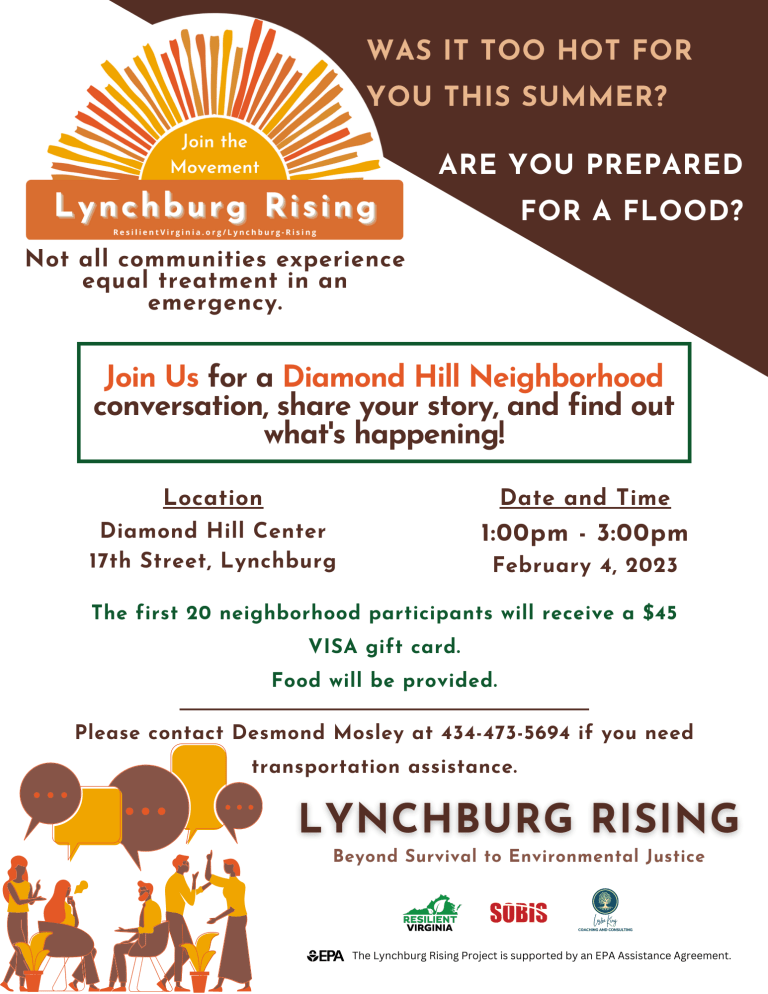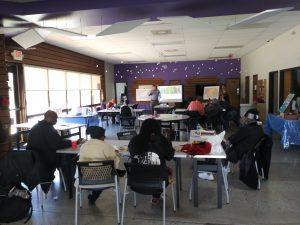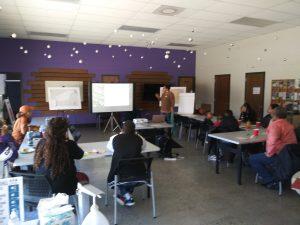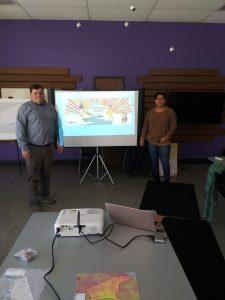
Environmental Justice, Neighborhood Strengths & Assets
What does environmental justice mean to you?
- Fair across the board, ex. Potholes in all neighborhoods, not just some
- Health environment – no food desert
- Fair everywhere, treated equally without bias
- Not based on neighborhood or who you know
- Rental disparities
- Environmental Action distributed fairly
Neighborhood Strengths
- Quiet
- People, church, history of Gilmore Circle
- History of Daniels Hills nice houses, good people, store, buses
- The beautiful homes
- The togetherness of neighbors
- 12th Street used to be all Black owned businesses
- Drug boys not on the corner like use to be
- Quiet
- Everybody keeps to themselves
- If emergency happens like power outage it is soon restored.
- Not a lot of noise, no children
- No drug use in my neighborhood
- No crime in neighborhood
- “I love the dead end”
- Location beside the highway
- Being close to shopping center & restaurants
- Smooth roads
- Good people that mind their business
- Having a septic pump system (no water bill)
- People that’s been living in my neighborhood 10+ years.
- Homeowners
- The quietness of my neighborhood
- No loitering
- Pride in making sure our community is taken care of as a team.
- No litter
- Generations remain in the neighborhood
- Old school vibe of neighbors knowing neighbors
Assets
- Diamond Hill Center/Team
- Diamond Church
- Hunton Randolph Community – Center – mental health services
- History
- Heritage High School
- Neighborhood Mayor
- Arthur Ashe Tennis Court
- Dr Johnson Office – 5th Street
- Gilmore Circle
- 10 Habitat Homes
- Virgil Wood
- Payne Elementary School
- Anne Spencer
- Original Seven Hills
- Dunbar History
Exploring the Issues: Heat, Flooding, Hazardous Materials & Other
Heat
- Weather is changing, hot or warm, then cold
- Trimming tree, no planning – Florida Ave
- Yes, but not drastically
- Increase in heat
- Utilities are going up
- Increase heat in summer & increased cold in winter
- Florida Avenue – less trees
- Grace Street – less trees
- Dutch Elm Disease – trees were cut down 25 years ago
- 12th Street not much trees
- Pierce Street between 12th, 13th Street
Flooding
- White Rock & Florida Ave – limbs and debris
- 16th & Monroe – water drain
- Pine Street – Flooding
- Dunbar – 14th Street Flooding
Hazardous Material & Other
- Down power lines
- Broken sidewalks
- Limbs down
- No street lights
- Pot holes
- Bluff Street
Opportunities for Change
Individual
- Speak to people and keep going
- Help clean what you can
- Spread the word of gatherings
- Attend city council meetings
- Better involvement
- Documentation
- Respect for each other and environment
- Attend council sessions
- Vote
- Be a resource
- Speak up and Stand Up
Do With Others
- Communicate
- More meetings
- More community meetings – invite city council
- Strength in collaboration
Institutions and the Local Government
- Fix the problems in the neighborhood
- Plant more trees







